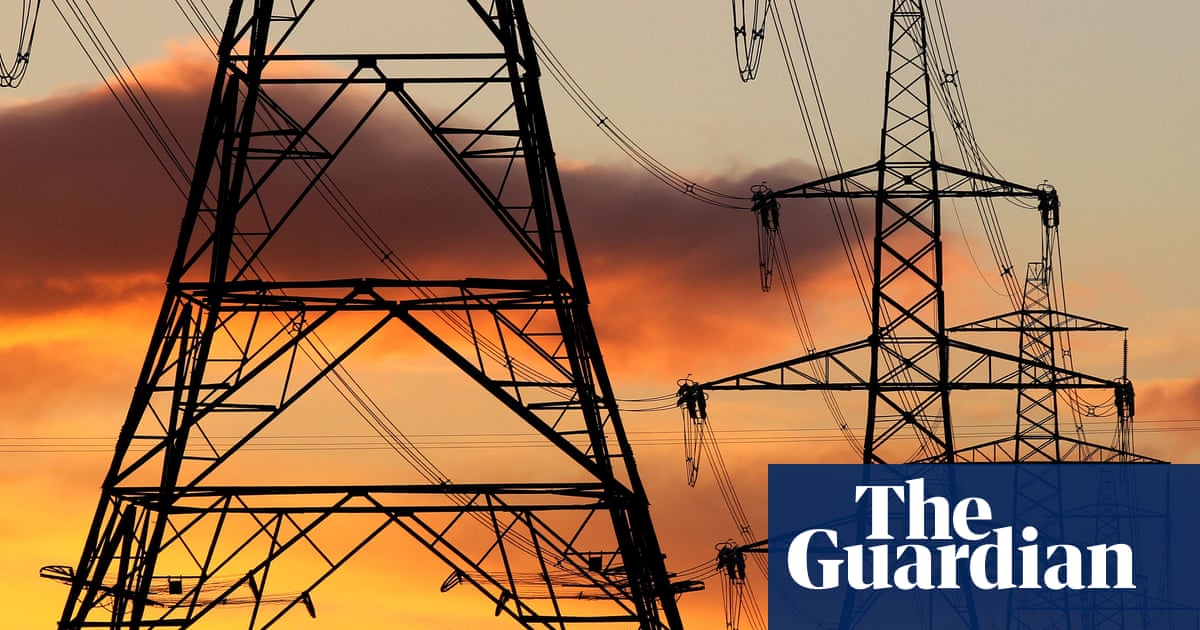Energy companies have been given the green light to spend nearly £24bn on Great Britain’s electricity grid, in a move that will further increase household bills.
In its draft verdict on price controls for energy network companies, the energy watchdog,Ofgem, approved more than £15bn to be spent on gas transmission and distribution networks in the five years to 2031.
A further £8.9bn will be invested in the nation’s high-voltage electricity network – the biggest expansion of the grid since the 1960s – with a further £1.3bn earmarked on top of that.
The funding will allow 80 big energy infrastructure projects to be completed by 2030 and comes amid a push by the government to boost the UK’s renewables sector to help improve energy security.
However, to cover the cost of the investment, households’ bills will rise by £104 by 2031 – £30 for gas networks and £74 for the electricity grid. This means an extra £24 a year on bills, which remain higher than beforethe energy crisis, which began to escalate in 2021.
The regulator added that bills would be even higher – about £30 more – without the investment, because the funding will allow the UK to make “better use of our clean renewable energy so we are not having to pay for expensive gas plants to serve demand”.
Labour hasfaced questionsover the cost of its plan to switch to a clean power system by 2030, which it has said will ultimately lead to lower bills.
Jonathan Brearley, the Ofgem chief executive, said major investment in the energy networks was vital to “ensure the system has greater resilience against shocks from volatile gas prices we don’t control”.
He added: “Doing nothing is not an option and will cost consumers more – this is critical national infrastructure. The sooner we build the network we need and invest to strengthen our resilience, the lower the cost for bill payers will be in the future.”
On Tuesday, Ofgem’s quarterly price captook effect, reducing a typical annual dual-fuel bill by 7% to £1,720.
Brearley insisted the regulator had built in cost controls and negotiated a fair deal for investors and consumers. “We won’t hesitate to intervene if network companies don’t deliver on time and on budget,” he said.
Sign up toBusiness Today
Get set for the working day – we'll point you to all the business news and analysis you need every morning
after newsletter promotion
The energy regulator’s draft verdict included a plan to increase the returns that investors can get on equity put intogrid companies. A final decision will be published by the end of the year.
Ofgem proposed a cost of equity of 6% for private investment in grid companies, up from 4.55% in the previous five years.National Grid, SSEN Transmission and Scottish Power are among the utilities submitting plans, and had asked for up to 6.9% in returns.
SSE said Ofgem’s proposals for returns were “not commensurate with globally competitive market rates, robust market evidence, and the significant business risks of investing in electricity transmission”.
However, SSE’s share price rose by 1.8%, National Grid increased 2.2% and Scottish Power’s Spanish owner Iberdrola was up 1.3%, suggesting shareholders were cheered by the Ofgem announcement.
